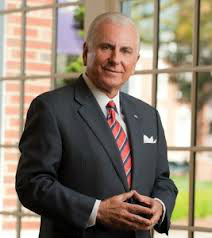
Freedomway.ca
The english language can be a deceiving and confusing tool that can either empower you or cripple you.
Years ago, when I was earning a degree in English at the University of Manitoba, I learned that words in the english language are actually very flawed and primitive tools that do not really work.
Words can be a broken, primitive man-made tool. It's common knowledge that words account for less than 10% of our actual communication (I believe the number is around 7% of communication.)
For example: In Canada, we have people who are really self employed that call themselves "entrepreneurs". Realistically these people trade time for money every day, operate their business as technicians, have zero competent employees, take on all the risk and liability and cannot leave their business for a second or it falls apart.
Words are confusing tools: Just because you are self-employed does not mean you are an entrepreneur.
Of course, we are working with the English language and words are deceiving. There is a vast population of self employed people in Canada and around the world who think and believe that they are true "business owners" or "entrepreneurs". The reality is, these people own risky jobs with high time requirements and overhead.
They have not built any real businesses, and they cannot sell their "business" because there is nothing to sell. However, many of these people think they have a REAL business.
Words do not work to differentiate a legitimate business from a self-employed JOB... for many, this can be a very confusing scenario.
My definition of an entrepreneur is a person who starts businesses. Starting businesses is an entrepreneur's vocation. They start businesses often, likely have multiple businesses at once and are always aiming to start yet another business. This is the entrepreneur's game and few have the stomachs or the balls required to play the game.
The word "Entrepreneur" (to me) is all about the art of the start up. The best entrepreneurs are visionaries and they are brilliant at creating a successful chain of businesses and brands. They often do not stay in a particular business too long because they actually build a competent management teams to take over and grow the business without them.
The best entrepreneurs in the world (Today and in the past) are visionaries: Steve Jobs, Bill Gates, Richard Branson, Henry Ford, Thomas Edison and others have all started a chain of ventures and created a succession of businesses. These men were creators who created businesses often and eventually left a vibrant collection of businesses behind upon death.
But how does this apply to you?
One very successful living entrepreneur that I am studying right now is Nido Qubein. Nido is an immigrant from Lebanon who came to America as a boy and has built a succession of businesses valued at over $100 million dollars a piece. I have heard that his estimated net worth is around $500 million dollars (but net worth is very hard to determine).
As a sign of a true entrepreneur, all of Nido's businesses are in unrelated industries. He is able to move from industry to industry and become successful every time. Nido has built successful businesses in the following industries: the banking industry, the bread industry, the furniture industry, the speaking industry and now he's in the education industry at the head of High Point University.
Nido is able to take complicated concepts and make them simple, he is a very talented man at communicating (and english is certainly not his first language).
There are 3 key important factors to consider if you are going to determine if you own a real BUSINESS or just a risky JOB.
Nido's 3 factors are:
- Sustainability - Is your business sustainable? Can the business be scaled? Can the market support you? Can the business run without you?
- Consistency - Is your business consistent? Is there consistent money coming in?
- Predicability - Can you predict the numbers in your business? Do you track past performance and know your numbers inside and out? A great number to know that most people don't is "what is the cost of acquiring a lead in your business"?
If you do not have Sustainability, Consistency and Predicability in your business - then you don't have a business! Instead you own a job.
Entrepreneurs who jump from being an employee to self-employed always have to make the following decision "Am I going to do whatever it takes to become a real business owner? Or do I quit now and get a good job at the union or with the government?". There is absolutely nothing wrong with either scenario, but there are costs to both choices.
Nido says that everything in life is PAINFUL. What that means is that we have to PAY-IN-FUL for everything and nothing in life is free.
If we quit and get a job with the union, we give up much of our time and consequently the opportunity in life. We trade freedom for security. If we make the leap towards business owner, we risk all security for a chance at freedom.
For those of us that want to be true business owners, the cost is extremely high. Becoming a true business owner may be the most expensive thing a person ever does in their life. It takes blood, sweat, tears, time and money to achieve sustainability, consistency and predicability in a business.
The real question we have to ask ourselves is; which currency do we want to pay for our success in? The school of life accepts the following forms of payment; blood, sweat, tears, time and money. Please beware that the School of Life also gives no refunds.
Thanks for reading,
Stefan Aarnio
freedomway.ca
P.S. Please share this article if you found it helpful!
 RSS Feed
RSS Feed

